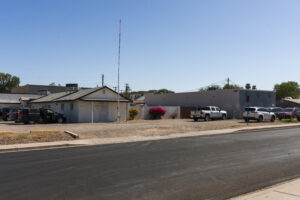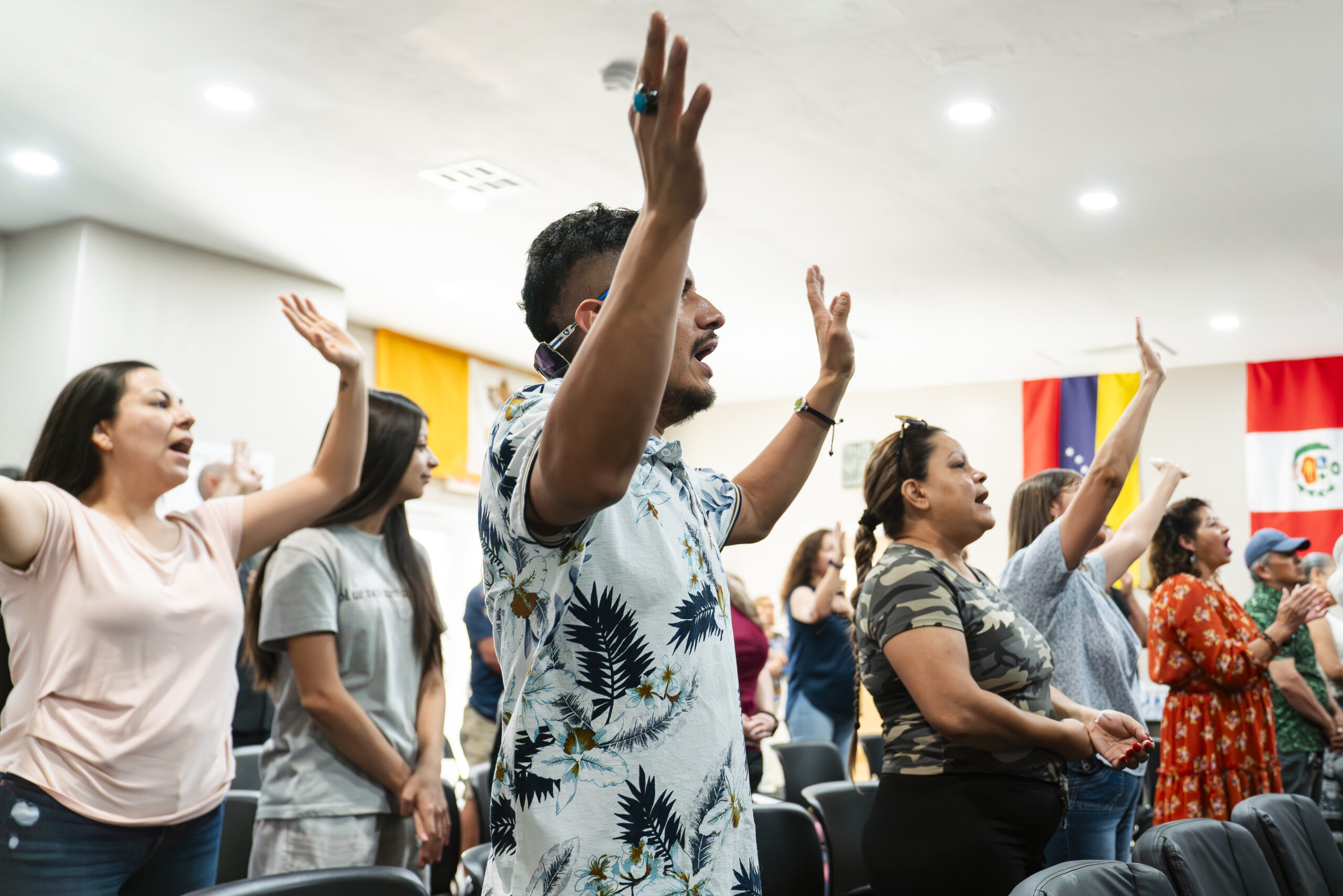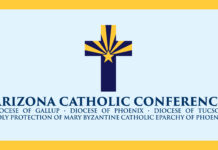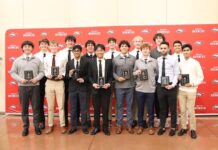Armando Ruiz remembers when the sound of gunfire used to shatter the quiet South Phoenix neighborhood, he and his family have called home for six decades. A biker bar on the corner adjacent to the St. Catherine of Siena parishioner’s home was ground zero for trouble.
One night, Ruiz says, about 100 people crowded into the bar’s parking lot. And that’s when the bullets started to fly.
“There was a grandma across the street with her daughter and grandson and the granddaughter and they all hit the ground,” Ruiz says. The family later found a bullet had pierced their window. Still, none of the neighbors complained to the police. They were afraid. Afraid of the authorities. Afraid their voices didn’t matter, that nothing would change.
“I’ll tell you what life was like with the biker bar. It was constant fear, constant intimidation and hopelessness,” Ruiz declares.

Those days are over now and the site has been transformed into a center for an evangelization effort known as The Guadalupe Project. The project focuses on deepening participants’ understanding of the Catholic faith, particularly the Mass and the Eucharist. Ultimately, it’s about forming disciples who will then go and share what they’ve learned with others. So far, more than 1,000 people have been trained by the team that runs the center.
So how exactly did a neighborhood trouble spot become a fomenter of faith?
“People started calling the police and leaving their names and information. There was a
record built that there were problems.” The mayhem continued, but the city was beginning to take notice. A fragile sort of hope began to bloom.
And then someone asked Ruiz a question that proved to be a turning point: “Why don’t you just buy the place?” Ruiz was doubtful but approached the owner of the bar and discovered he was a man of prayer.
“He’s Muslim. I think we met each other on this bridge, if you will. He was trying to invest in the community and have something for himself and his family,” Ruiz says. He didn’t intend for his property to become a magnet for crime.
“And then you know, we live here and we want the same thing — something good for our families. We have different faiths but we’re trying to achieve the same thing. For me, that was the most satisfying part of it. We became friends.”
“Maybe that’s the lesson here,” Ruiz muses. “You can have evil in the world but then there’s the power of God to bring people together of different faiths, people who are believers and non-believers. He brings them together and there is peace that can come to a neighborhood.”
Transformation
A walk through The Guadalupe Project property reveals a brightly lit, tastefully decorated classroom and conference center set up with windows that let in plenty of natural light. The multi-generational team of mostly young people gathers at a large table to discuss the objectives and tactics of The Guadalupe Project. They’re using markers, florescent cardboard signs and even repurposed packing materials to bring their message to life. And it’s catching fire both in Phoenix and across the globe.
“We’re trying to just help people come back to Mass, come back to the sacramental life and parish life, especially young people under 35,” Ruiz says. The pandemic stole many away; proselytizers, apathy and lack of knowledge took others.
“What we’ve found is that most Catholics have no idea of what’s in the Bible.”
The training The Guadalupe Project offers begins with a framework for understanding Scripture. Ruiz’s daughter-in-law expands on that:
“My generation, the older ones, they are good believers, they go every Sunday, they pray, but do they know the Bible? Do they know their faith? They don’t,” Arla Rascon Ruiz says. This lack of understanding and knowledge, she says, makes it difficult to transmit the Catholic faith to the next generation.
“We are forming adults to teach the young,” Rascon Ruiz says.
With the 500th anniversary of the apparition of Our Lady of Guadalupe approaching in 2031, the 2,000 anniversary of the redemptive sacrifice of Christ on the cross coming up in 2033 and the Eucharistic Revival which culminates in 2024, there’s a trifecta of motivation behind the work The Guadalupe Project has undertaken. Two years ago, the team began offering a Eucharistic Evangelization course.
“It’s a weeklong course in the evening that we do to help people to learn about the Eucharist, but what we found out after that was there was not a basic understanding of Scripture. It’s like, where’s Exodus? Is Moses in the New Testament or the Old Testament?” Ruiz says.
The Guadalupe Project breaks down the 46 books of the Old Testament and the 27 books of the New Testament into color-coded groups that help people see the divine plan of salvation unfolding through the Word.
About a third of those who sign up and take the course discover the Bible they own isn’t Catholic and is missing seven books.
“I had catechesis all my life,” José Melero says. “But right here I found out how to learn stuff easier.”
The courses are aimed at baptized Catholics who don’t attend Mass regularly, not just here but in Mexico and far-flung places like Chile, Peru, Mexico and Uganda.
In these countries, Ruiz says, there’s been a drastic drop in Mass attendance.
“And lack of Mass attendance leads to lack of sacramental life. That means you’re not going to have young people getting married in church, you’re not going to have babies getting baptized, and you’re not going to have First Holy Communions.
“Sacramental life suffers when you don’t have parish life. You don’t have a parish life if you don’t attend Mass.” One objective of The Guadalupe Project is to reach those Catholics his team calls catolicos por tradición, or Catholics by tradition whose Mass attendance is sporadic.
“How do you reach them?” Ruiz asks aloud. “They’re not going to come to a two-week course on theology.” What if you could gather in small groups and just talk? What if you could just take a look at the Sunday Mass readings?
Ruiz hopes to partner with Christ in Our Neighborhood, an evangelization program developed by Bishop John Dolan 20 years ago in San Diego and launched last spring in the Diocese of Phoenix. The program is centered on small groups that come together in the home once a week to discuss and pray through the upcoming Sunday Mass readings.
“We had two goals here,” Ruiz says. “One was to form Catholic leaders who can be missionary disciples who can transform culture and society; and the second one was to create this regional center of evangelization called Marytown. We are on our way on both of those counts.”








